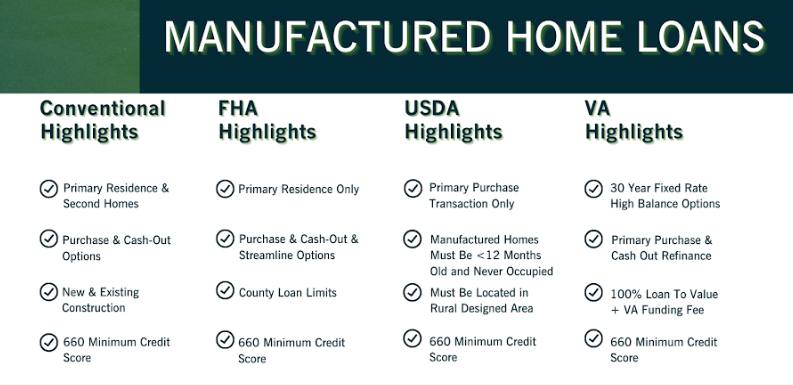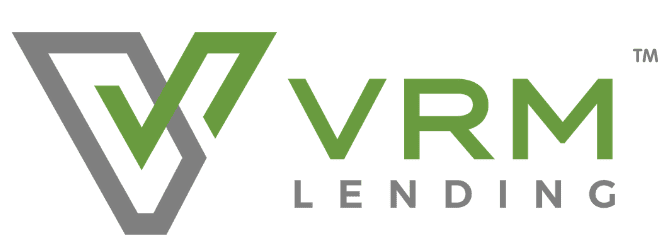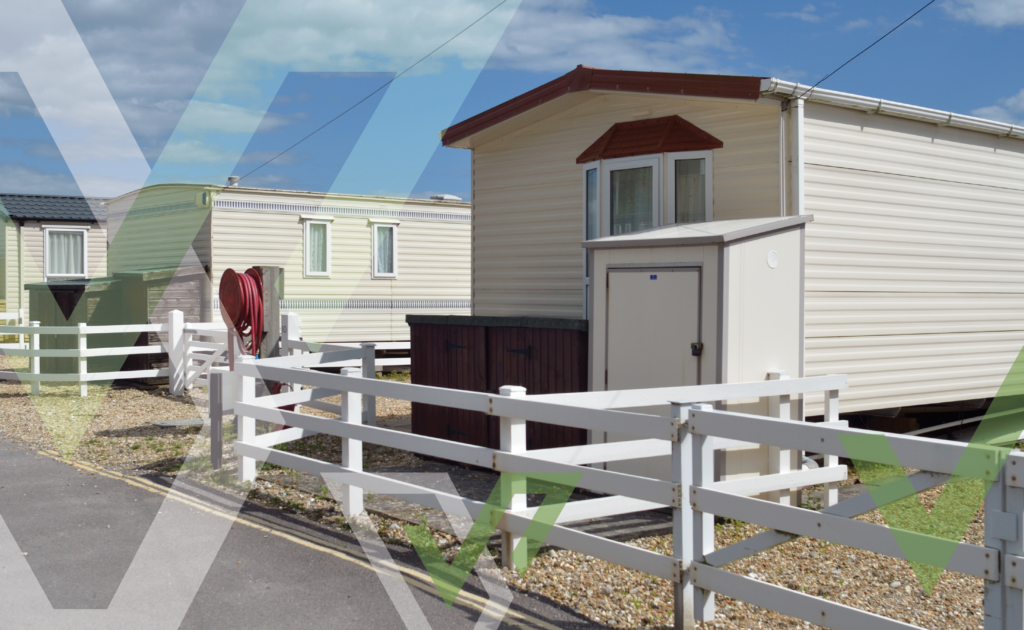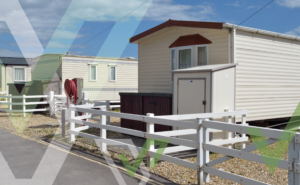Manufactured homes, sometimes called mobile homes, are factory-built houses that offer affordable and customizable options for homeownership. Think of them as houses pre-assembled on a production line, then transported and placed on a permanent foundation at your chosen location.
Manufactured homes are important in today’s market because they offer an affordable path to homeownership. According to the Manufacturing Housing Institute, the average manufactured home sells for about $127,250.
While manufactured homes can offer a more appealing price point than a traditional house, financing them is different than a traditional mortgage. This blog covers what you need to know about manufactured homes and the loans you may need to purchase one. Before we dive in, it’s important to understand the nuances of the various types of manufactured homes.
What is a Manufactured Home?
Defining a manufactured home can get a little tricky, as the term has evolved and can sometimes be used interchangeably with “mobile home.”
A manufactured home is a factory-built dwelling constructed by the HUD Code, a set of federal building standards established in 1976. These homes are transported to their permanent site and installed on a foundation.
Historically, the term mobile home was originally used for all factory-built homes, regardless of when they were built. However, after the implementation of the HUD Code in 1976, the term “mobile home” technically refers to homes built before that date, which may not meet the newer, stricter building standards.
Today, both “manufactured home” and “mobile home” are often used interchangeably, but it’s important to remember the technical difference based on the year of construction and compliance with the HUD Code.
The key characteristics of a manufactured home include:
- Factory-built: Constructed in a controlled environment rather than on-site.
- Transportable: Designed to be moved to its permanent location.
- Installed on a foundation: Anchored to a permanent foundation upon arrival at its final destination.
Here are a few examples of the various kinds of factory-built homes that qualify as manufactured homes:
Mobile homes: These homes are built on mobile platforms but readily transform into permanent residences. Once transported to your chosen site, the wheels are removed, and the home is anchored to a foundation, becoming an integral part of your land.
CrossMod: This innovative category of manufactured homes embraces features that blend them seamlessly with site-built homes. Think drywall interiors, spacious garages, and inviting porches, all built to the same rigorous standards.
Modular: Similar to manufactured homes but adhering to local building codes, modular homes arrive in sections, ready to be assembled by skilled contractors. This option offers additional flexibility and customization for those seeking a more traditional building experience.
Tiny houses: Technically, not all tiny homes are manufactured homes. Many are built on-site or in unconventional ways, without adhering to the HUD Code. However, the tiny homes that are considered to be manufactured homes are built in a factory to HUD Code standards and designed for transport and installation on a permanent foundation.
Your Options for Manufactured Home Loans
Just like a traditional home, financing your manufactured home requires navigating various loan options. Be sure the home you are interested in qualifies for a manufactured home. Once you do, you can look into the following types of loans.
Manufactured Home Mortgages
A Manufactured Home (MH) mortgage includes government-backed options like FHA Title I, USDA, and VA loans.
Here are details of each:
FHA Loans: The Federal Housing Administration (FHA), through HUD, offers a valuable resource for financing your manufactured home dream. A distinct loan type falls under this umbrella—Title I. FHA Loans are offered through private mortgage lenders and not FHA or HUD.
Title I Loan: This option offers flexibility because it can be utilized for a multitude of purposes, including:
- Acquisition: Purchasing a new or pre-owned manufactured home.
- Refinance: Restructuring your existing manufactured home loan.
- Land Acquisition: Financing the purchase of a suitable lot for your manufactured home.
- Combined Purchase: Securing funds for both the home and the land simultaneously.
- Home Improvement: Funding renovations, repairs, or upgrades for your manufactured home.
Even if you don’t own or plan to purchase the land where your manufactured home will reside, you may still qualify for a Title I loan. In this case, the home will typically be situated in a manufactured home community or mobile home park.
However, if you haven’t already secured land ownership, you’ll need to provide a signed lease agreement for a suitable plot with a minimum initial term of three years.
The Title I program has additional requirements and specifications related to the loan terms and conditions. Explore these details thoroughly to ensure you choose the option best suited to your specific needs.
Financing Options for Your Manufactured Home Dream
While traditional financing options exist for manufactured homes, newer programs offer alternatives for qualified borrowers.
Conventional mortgages like Fannie Mae MH Advantage and Freddie Mac Home Possible also offer programs for low down payment options (3%) for manufactured homes. Homes must meet the qualifications for a manufactured home, such as being permanently fixed on foundations and title as real property. Here are the details of both, plus an option for a VA loan if you’re a veteran.

Fannie Mae’s MH Advantage
This program provides financing with potentially lower interest rates and is available for borrowers with a credit score of around 620 or higher. Private lenders offer financing for single-width to site-built features, with a low down payment of 3%, which can be a boon for first-time home buyers.
However, eligibility requires specific home features, including driveways, sidewalks, and construction standards akin to site-built houses.
Freddie Mac’s Home Possible®
Home Possible® is a program geared towards very low-income borrowers who need a low down payment solution with a flexible source of funds. The program offers a down payment of as little as 3% and is available to co-borrowers who don’t live in the home and can be included in the borrower’s residence.
Eligible property types and properties include 1-4 units, condos, and planned-unit developments. Manufactured homes are eligible, with certain restrictions.
VA Loans for Veterans
The VA offers loans with up to 100% financing on manufactured homes. You can utilize these funds for purchase, combined purchase, and land acquisition, or refinancing an existing home you plan to relocate. VA loans are offered through private mortgage lenders and not directly from the VA.
To qualify, you’ll need to provide an affidavit of affixture, verifying the home’s attachment to the land you own and its compliance with local and VA standards. The following is required for a VA-manufactured home:
- Needs to be fixed to a permanent foundation
- A minimum of 700 sq ft interior floor space
- The property must be legally classified as real estate in your state and comply with all local zoning regulations, as outlined in Chapter 12 of VA Pamphlet 26-7.
If you want to learn more about these programs, contact us. We have flexible and affordable solutions to get you into the manufactured home of your choice. Explore your options and reach out for more information.
When researching, be sure to understand what each loan type offers and compare rates and terms. Unlocking access to your dream manufactured home starts with understanding your financing options so you can confidently embark on your journey toward homeownership.
Disclosures: VRM Lending LLC is not affiliated with or acts on behalf of or at the direction of FHA, VA, Fannie Mae, Freddie Mac, or the Federal Government.
VRM Lending LLC NMLS: #1941734







